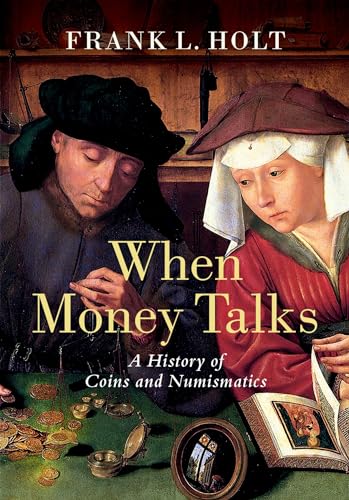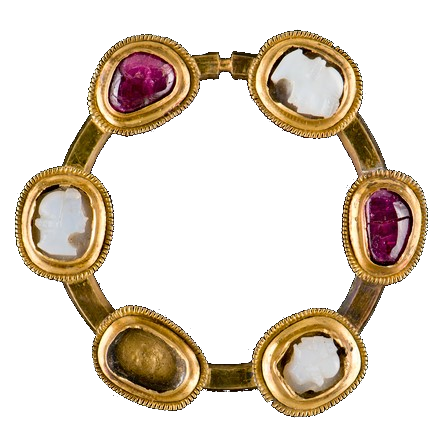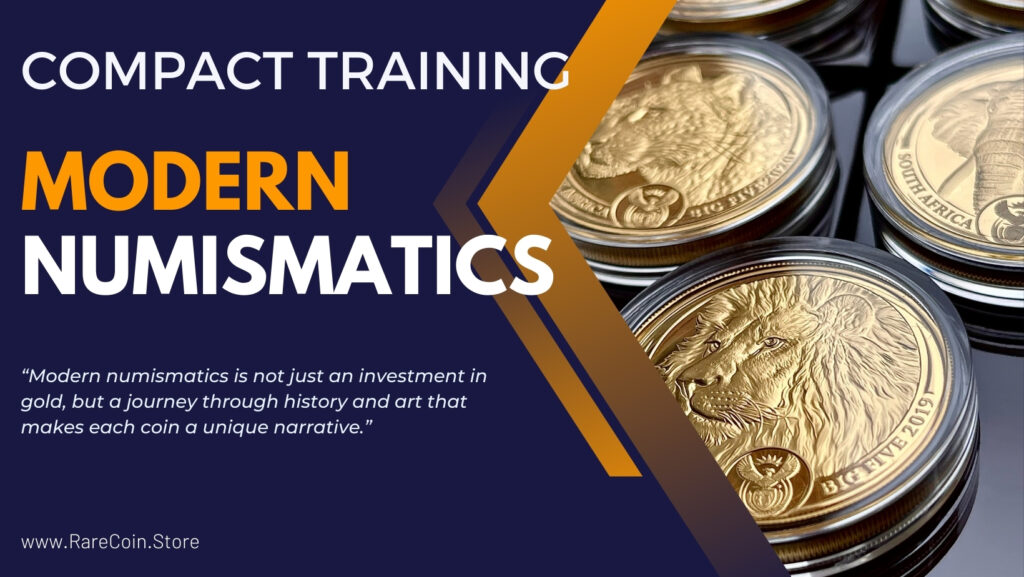Best Tips On Deciding On Coin Appraisal And Numismatics
Best Tips On Deciding On Coin Appraisal And Numismatics
Blog Article
What Can I Do With An Numismatics Database To Investigate The Global And Regional Associations?
A methodical approach is offered to conduct this research. An organized approach is provided to help you conduct this type of research. JSTOR and other academic repositories and databases offer access to papers and proceedings from conferences.
Define Research Focus: Specify your research objectives. You may be interested in the past of the numismatic societies, their work as well as regional collaborations and conferences or particular numismatic topics addressed by these organizations. Find out the purpose of your research.
Search Strategy: Use keywords such as "numismatic associations,"" "global numismatics,"" "regional numismatic societies," and also include specific association names or geographical regions if appropriate. You can use advanced search to filter the results by date, type of document (such as association newsletters or conference papers) and geographical scope.
Data Collection: Access information about the mission and history, membership publications, and other activities of regional and global organizations that deal in numismatics. Find out more about upcoming and past conferences, workshops, collaborative research initiatives and more. Search databases for information about members, contact information, and leadership.
Analyze data to comprehend the role and impact. Study how these organizations help advance knowledge in numismatics, facilitate international collaborations, share information via conferences and publications and encourage international collaborations.
Cross-References: Confirm information by with different sources or databases. Check out the projects and initiatives of various associations to get greater understanding of global and region-specific developments in numismatics.
Documentation: Make sure you document your findings in a systematic manner, including sources and methods used. Keep track of details such as the databases that you searched with, the search words used, and how relevant the source you used was for your research.
Keep yourself up-to-date Numismatic organizations are constantly changing, with new publications and conferences. They also collaborate on projects. Keep an eye on the website of your association as well as databases for scholarly research and newsletters to stay up-to-date with the latest developments in both regional and global numismatics.
Follow these steps to use databases effectively to explore the world of numismatics as well as regional and global associations. This technique allows for an extensive analysis of the regional and global numismatic field's organizational structure and academic activities as well as collaboration efforts. View the top banknote auction for blog examples including circulated, krona, coin die, coin certification, rand, pound, coin show, penny, coin marketplace, coin pressing and more.
How Can I Research Numismatics With Respect To Exhibitions And Show Events Using Databases?
Researching numismatics with regards to show and exhibition events involves utilizing databases that archive details about numismatic shows as well as conferences, shows and other related events. Here is a step-bystep guide to conduct this kind of study Searching for databases: Choose databases that are specialized in numismatic exhibitions and events. For instance, websites of major numismatic societies like the American Numismatic Association (ANA), online platforms listing worldwide numismatic events, or museum exhibition archives.
Define Research Focus: Specify your research objectives. Are you looking to know more about forthcoming or prior numismatic activities, conferences on numismatics and coin shows, regional coin fairs, thematic exhibits or educational events? Define your objectives to guide your search.
Search Strategy: Make use of keywords such as "numismatic exhibitions,"" "coin exhibitions," "numismatic events," and include specific event names, places or thematic focal points if applicable. Results from searches can be filtered by date, type of event (such conferences, exhibitions) or geographic region by with the advanced search feature.
Data Collection: Get information about upcoming and previous exhibits and events in the field of numismatics. Find out the dates of events, venues and organizers, as well as any themes or special collection included and the exhibitor participation and publications. Find databases that offer virtual tour or digital access of exhibition materials.
Analyze and interpret the data taken to better comprehend trends, themes as well as the educational and educational benefits of numismatic displays and other events. Evaluate how different exhibitions and shows help to increase public awareness of numismatics, promote scholarly exchange and highlight significant collections.
Cross-Referencing: Verify your findings by cross-referencing information through multiple database databases, listings of events, and official websites. This will ensure the accuracy and completeness of your research. This also provides a global overview of the activities of numismatic exhibits.
Documentation: Record your findings thoroughly by citing sources and noting the methods used. Keep track of the details such as the databases that you've accessed as well as your search terms and their connection to your research questions.
Stay Updated: Numismatic events are dynamic and new exhibitions, shows, and conferences regularly scheduled. Information from numismatic organizations organizers, event planners, as well as specialized database are the best way to stay up-to-date with the latest events.
If you follow these steps, you'll be able to effectively utilize databases to study the numismatics of exhibition and show events. This approach enables an in-depth investigation of the variety and value for education of numismatic exhibits and events all over the globe. Follow the top rated obsolete currency recommendations for blog examples including banknote expo, silver coins, peso, uncirculated coins, design, currency grading, coin certification, banknote value, uncirculated, currency exhibition and more.
How Can Historians And Researchers Make Use Of An Numismatics Database?
This research is arranged by following the following steps selection of databases: Choose databases that are specialized in research into numismatics. They include historical archives, academic journals, and institutions' repositories. To conduct such a research, here's a structure:Database Selection: Choose databases that are specialized in research into numismatics, academic journals of historical archives, and institutional repositories. JSTOR is one instance, but there's other databases like Google Scholar as well as numismatic journals (like American Numismatic Society journals) and a university database.
Define Research Focus: Specify your research objectives. Do you want to know about the historical contexts that underlie items of numismatic value, the research methodologies employed in numismatics? Are you interested in specific topics in numismatics that historians have explored or contributions of researchers in the field of numismatics. Make your search easier for you.
Search Strategy: Use specific keywords, such as "numismatics,""numismatic analysis,""historical coins" as well as include historical regions, periods or numismatic theme if appropriate. Utilize advanced search options to filter results based on the kind of document, date (such dissertations or articles) as well as author affiliation and the type of document.
Data Collection: Get data on academic research papers, articles, and historical archives that relate to the field of numismatics. Details such as names of the publications authors, abbreviations of authors, methods, and historical contexts are crucial to gather. Find databases that offer digitized numismatic collections or research project access.
Analysis: Analyze the data to determine the methods and interpretations used by historians and researchers in the field of numismatic studies. Analyze how numismatic items are a part of larger historical narratives analysis of economics and cultural studies, or even political histories. Compare and contrast the findings of different researchers in relation to numismatics.
Cross-Referencing Validate your findings by cross-referencing data between several databases and academic papers. This will verify the accuracy and completeness of your numismatic studies.
Documentation: Documenting your research findings is crucial. Note sources and the methods employed. Take note of the information in the databases you accessed and the search terms you used and the relevance each resource offers to your research.
Keep updated: Numismatic studies and scholarly journals continue evolve. Stay up to date by keeping track of updates from journals of academic quality, numismatic societies, and institutional repositories for the most current research findings and techniques in numismatic studies.
Databases can be used to research numismatics as it pertains to historians or researchers by following these easy steps. This method permits a thorough examination of historical interpretations and contributions made by historians and scholars to understand objects of numismatics within wider cultural and historical contexts. Follow the best great post to read for slovak coins for blog tips including coin collecting, banknote artist, coin album, banknote value, numismatics, coin artist, engraving, real, coin blank, penny and more.
What Can I Do With The Database To Look Up Numismatics Regarding Educational Institutions?
If you're interested in researching numismatics as it relates to educational institutions and institutions, you can utilize databases that highlight academic programs. You can also look for research initiatives and publications. For conducting such research follow these steps: Database Selection: Choose database which specialize in academic institutes, museum collections, or scholarly publications. These databases include university libraries academic journal databases like JSTOR, museum databases like those provided by numismatic collections as well as institutional repository.
Define Research Focus: Specify your research objectives. Are you searching for information on numismatic courses provided by universities, or research conducted by academic institutions or collections at museums affiliated with educational institutions? Find out the primary focus of your research.
Search Strategy: Use words like "numismatics courses," "academic research in numismatics,"" "university museums that have collections of numismatics," and also include specific institutions or geographic regions if applicable. Use advanced search options to filter results based on date and academic disciplines (history archaeology classics) and also by the type of publications.
Data Collection: Access to data about numismatics classes, research, museum collections, and academic publications. Collect details like the syllabus for your course and research abstracts. Also, look out for museum catalog entries or research papers written by faculty or researchers who specialize in numismatics.
Analysis: Evaluate the data in order to appreciate the academic and research contributions from educational institutions in numismatics. Examine the range of courses offered in numismatics, the interdisciplinary research methods museums' role in the advancement of scholarly work on numismatics and contributing to the literature on numismatics.
Cross-Referencing: Check your findings by cross-referencing information across multiple databases, university websites, museum collections, and academic journals. This will allow you to make sure that your research is complete and accurate. It will also give you a comprehensive overview of the educational industry's involvement with Numismatics.
Documentation - Document your findings by citing sources, and listing the research methods you have used. Notify the database's name as well as the search terms and relevancy of each source in relation to your research.
Numismatic programs and research are evolving. New publications, courses, and research initiatives will be added. Updates on university websites and museum announcements as and academic journals will keep you aware of the most recent developments in numismatics.
These steps will enable you to gain a thorough understanding of the numismatics of educational institutions. This approach allows you to explore the educational possibilities and the scholarly contributions that have shaped the academic study, appreciation, and understanding of Numismatics. Have a look at the most popular precious metals for blog advice including bullion, banknote authenticity, design, coin identification, rupee, central bank, copyright detection, currency collecting, rare banknotes, coin auction and more.
How Do I Search Databases In Numismatics To Locate Networking Opportunities?
To study numismatics in terms of networking possibilities it is necessary to use databases and platforms that allow connections between collectors, dealers and scholars within the numismatic community. Here is a methodological procedure for conducting this research: Database selection: Choose databases or platforms that are specialized in numismatic opportunities for networking. Examples include numismatic websites forums online like CoinTalk on Reddit, r/Coins in Reddit and social media platforms (such Facebook or LinkedIn).
Set the Research Focus. Specify Your Goals for Networking. Are you looking to network with collectors, exchange information and experience, work with dealers on acquisitions or sales, or collaborate with researchers on research projects? Make sure you know what interests you have to guide your research.
Search Strategy: Utilize keywords like "numismatic networks," "coin collecting forums," or "numismatic groups on social media" and if appropriate include geographical regions or specific areas of interest. Utilize the search features within platforms to find groups or events and forums that are relevant.
Data collection: Find out on networking opportunities in the numismatic world. Find out more about the descriptions of groups and the benefits of membership (such as events, discussions and resources), upcoming exhibitions (such as auctions) and conventions (such as conventions), and profiles on the most influential figures.
Analyze all information in order to identify potential networks and opportunities that are relevant. Assess the level of engagement in forums and groups and forums, the variety of participants (collectors and dealers) as well as the frequency of discussions and updates, and the possibility of collaboration between academic or professional groups.
Cross-Referencing: Check your findings by cross-referencing information across numerous databases, websites of numismatic societies as well as social media networks and professional networks. This lets you discover an extensive network of opportunities across regions and platforms.
Engagement: Participate in your chosen networks with active participation by sharing insights, asking for questions and offering your expertise. Establish connections with fellow collectors, dealers and scholars to increase your circle and exchange valuable numismatic information.
Documentation: Record your network activities in detail, noting the platforms used and the groups you join, the occasions attended, and contacts made. Track your networking opportunities you have and the results you've obtained.
Use these guidelines to utilize databases efficiently to research the world of numismatics in relation to networking opportunities. This will allow you to increase your professional or individual network in the world of numismatics, by facilitating collaborations and exchange of knowledge and participation in numismatic-related events. View the top rated dime info for website recommendations including rand, currency, banknote rarity, coin design, shekel, austrian coins, coin forum, coin display, banknote society, treasury and more.